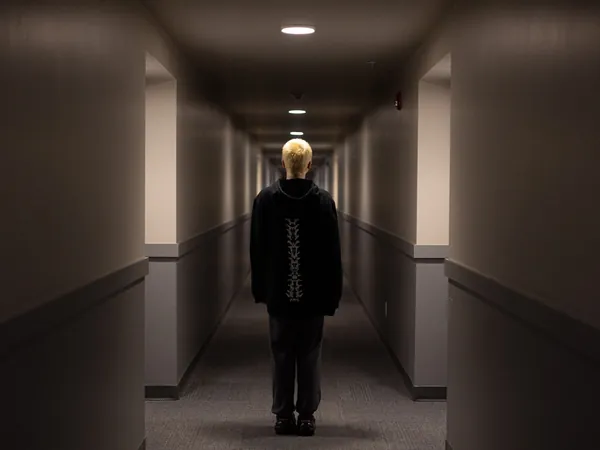
Abandoned by Society: The Harrowing Journeys of Detransitioners Seeking Help
2024-10-01
In a startling examination of the experiences of detransitioners, many individuals find themselves grappling not only with their identity but with the aftermath of medical transitions that left them feeling abandoned by both the medical community and the very communities that once supported them.
Take Amy, for example, whose journey began with a double mastectomy at just 16 years old. Without any mental health assessments or discussions to explore her distress with her body, Amy underwent a life-altering procedure, convinced it would resolve her deep-seated struggles. But instead, it plunged her into a spiral of worsening mental health. Now an 18-year-old high school senior in Southern Ontario, she is on the painful path of detransitioning, seeking medical help to restore her pre-transition body.
Sadly, Amy is not alone. The experiences of these individuals reflect a complex reality that often goes unaddressed: many detransitioners feel a sharp sense of isolation and rejection after stepping back from their gender transitions. Data regarding the prevalence of detransitioning remains limited, but emerging research indicates that individuals like Amy frequently face obstacles when trying to reverse surgical changes or halt hormone treatments. Often, they encounter stigma from healthcare professionals who lack the necessary resources or knowledge to provide adequate support.
Kinnon MacKinnon, an assistant professor at York University’s School of Social Work, highlights another layer of difficulty: the limited access to reconstructive surgeries for those seeking to detransition. Many find themselves lost in an inadequate healthcare system that views their needs as cosmetic rather than essential. Detransitioners are often left out of the conversation regarding options and support, as demonstrated through interviews with various participants who regret their transitions and feel thus neglected.
Sarah, a 23-year-old from British Columbia, shared her journey characterized by confusion and regret, having transitioned as a teenager while managing depression. After several drastic steps—including taking hormones and undergoing surgery—she now finds herself wrestling with her identity again. The burden of permanent bodily changes, including voice deepening and body hair, adds complicated layers to her emotional and psychological state.
At a time when the transgender community is under immense scrutiny and undergoing shifts in societal perceptions, these detransitioners bear an additional burden: the fear and stigma associated with their choices. Many find themselves ostracized by supportive circles they once belonged to, and their cries for help often resound in silence.
Mental health professionals increasingly note the importance of thorough and nuanced discussions surrounding gender identity and the significant impact of underlying mental health conditions on these transitions. There is a growing recognition that youth grappling with gender dysphoria may require comprehensive psychological support that distinguishes their gender identity struggles from other mental health challenges.
The conversation surrounding gender-affirming care needs to expand. Critics argue that every individual's journey is unique and should be approached with caution, understanding, and support that prioritizes their long-term well-being. As healthcare providers and lawmakers navigate these complex issues, it is vital to address the realities of detransitioners, offering them the resources, empathy, and care they desperately need.
Some recent studies suggest that when discussing gender transitions, professionals often overlook potential regrets and fail to ask critical questions. A significant shift in focus is required—one that ensures informed consent and comprehensive pre-transition counseling for minors.
The landscape of gender identity and transition is evolving, and so too must our approach to supporting those navigating its complexities. It is imperative to ensure that the most vulnerable among us, particularly young people facing immense pressure to conform, receive the careful consideration and support they deserve, regardless of the paths they ultimately choose.
As society progresses, it will be crucial to listen to and learn from the experiences of detransitioners; their stories can guide us toward a more compassionate and educated approach to gender identity and medical interventions.









 Brasil (PT)
Brasil (PT)
 Canada (EN)
Canada (EN)
 Chile (ES)
Chile (ES)
 España (ES)
España (ES)
 France (FR)
France (FR)
 Hong Kong (EN)
Hong Kong (EN)
 Italia (IT)
Italia (IT)
 日本 (JA)
日本 (JA)
 Magyarország (HU)
Magyarország (HU)
 Norge (NO)
Norge (NO)
 Polska (PL)
Polska (PL)
 Schweiz (DE)
Schweiz (DE)
 Singapore (EN)
Singapore (EN)
 Sverige (SV)
Sverige (SV)
 Suomi (FI)
Suomi (FI)
 Türkiye (TR)
Türkiye (TR)